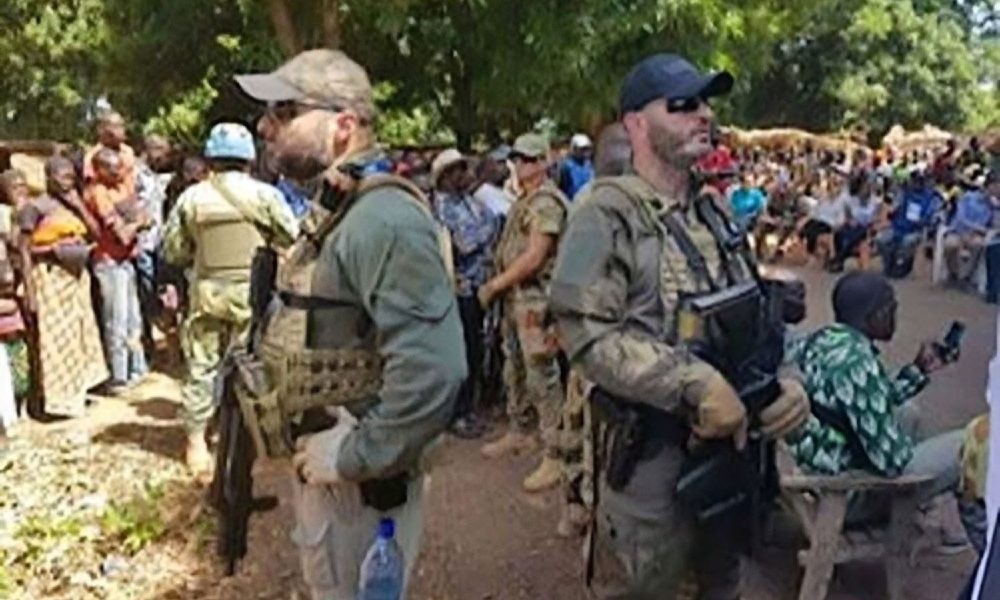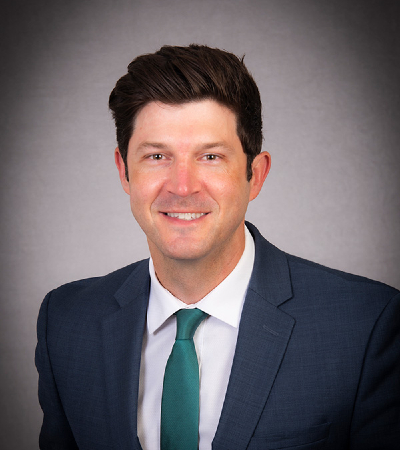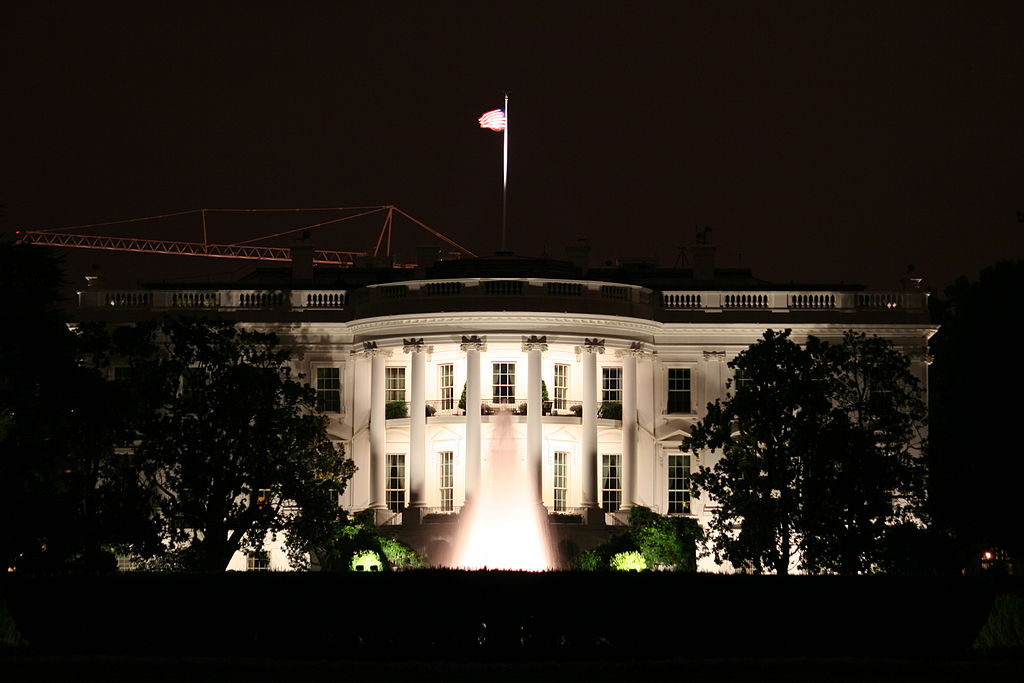The Wagner Group Lives on in Africa

Published by The Lawfare Institute
in Cooperation With

Editor’s Note: The Wagner Group, a private military company, captured world attention more than a year ago with its fighting in Ukraine and then failed mutiny against the Russian government. Despite some predictions that it would be abolished, the Russian government instead commandeered it and in Africa rebranded it as the “Africa Corps.” Marcel Plichta of St. Andrews, Christopher Faulkner of the Naval War College, and Raphael Parens of the Foreign Policy Research Institute describe how Russia uses private military companies in Africa today and the challenges this poses to regional security.
Daniel Byman
***
In the year following the Wagner Group’s June 2023 rebellion against Russian President Vladimir Putin, its chief, Yevgeny Prigozhin, and other senior leaders died, but Wagner lives on. The Wagner of today is not only rebranded; it is now amalgamated into the state to the point that it is no longer really a private military company (PMC), to the degree that it ever was. Wagner 2.0, now known as Africa Corps, is thriving.
Prigozhin’s rebellion and death created a conundrum for Russian officials. On the one hand, Wagner’s growing autonomy threatened the regime. On the other, the group provided several morale-boosting victories in Ukraine, supplied key services to the Russian military, and established large Russian presences in Central and Northern Africa. Prigozhin also left behind a business empire that enabled Russian sanctions evasion and a media arm that amplified Wagner propaganda. In Africa, Russian officials have continued these activities within the Central African Republic (CAR) and Mali and added Africa Corps deployments to Burkina Faso and Niger, while also reinvigorating relationships with Libya and Sudan. Along the way, these officials have happily applauded the exodus of American and French troops.
Like Wagner, Africa Corps aims to capitalize on the deteriorating relationships between Western states and illiberal African governments. And though no longer affording the Kremlin the luxury of plausible deniability, Russia’s mercenaries remain a key component of Russia’s Africa policy. As Russian Foreign Minister Sergey Lavrov’s recent Africa tour reveals, Moscow has no intention of slowing down its efforts to expand its reach and relationships on the continent.
Business as Usual
For all the effort to remove the “Wagner” name in Russian contexts, the brand remains strong in some of its longest-running African missions. In the CAR, for instance, propaganda pieces on Wagner’s legacy Telegram channel still show Central Africans wearing Wagner-branded shirts and other merchandise. Wagner’s popularity in the CAR stems from a few reasons, chief among them its role in blunting and ultimately reversing a rebel offensive on the capital city in early 2021. Many of the Wagner-era leadership figures in the CAR have remained in place and operations look basically the same as they did before the mutiny, with some shifts in lower-level commanders. Russia has continued pioneering an armed resource-extraction model in the CAR, pursuing gold mining on an industrial scale and embedding itself in other sectors of the CAR’s economy, from exporting timber to brewing beer. These operations are bilking the CAR of natural resources and scarring the country with ecological damage, while Wagner’s legacy troops continue to threaten the lives and livelihoods of local workers.
Russia appears invested in establishing a long-term presence in the CAR and is conducting negotiations on a permanent military base. Likewise, President Faustin Archange Touadéra’s regime appears committed to Russian security cooperation, along with the support it also receives from Rwanda. Touadéra does not seem outright hostile to working with other partners, but nascent efforts like the prospective training mission by a U.S. company, Bancroft, tripped at the starting line when one of its employees was arrested after arriving. The U.S. approach failed to provide a tempting enough offer to convince Touadéra to abandon his Russian backers, or perhaps he does not have the political leverage to do so, demonstrating Wagner’s stranglehold on the country’s political system. Nonetheless, the CAR is a tricky balancing act for Russia, as it wants to ensure tighter control over Africa Corps’s operations while maintaining continuity in a “successful” mission.
In Mali, Prigozhin’s mutiny did little to disrupt Wagner’s ongoing operations but shifted the command and control structure to bring its work in the country under Moscow’s formal control. Rather than slow down the operational tempo, Africa Corps has opened new fronts across the country, including operations aimed at challenging Tuareg separatists in Mali’s northern provinces. Such efforts have been welcomed by the Malian armed forces, which see the offensives as further distinguishing their Russian allies from the French, Mali’s former counterinsurgency partner.
So far, Africa Corps can claim some tactical victories, including helping the Malian army retake the separatist stronghold of Kidal in November 2023, just months after Prigozhin’s death. But going after separatist rebels instead of terrorist groups could do lasting harm to Mali’s international standing. The recent offensives and ruling junta’s abrogation of the 2015 Algiers Accords—a peace agreement that established limited autonomy for Mali’s ethnic groups, notably the Tauregs—has put the regime at odds with the United Nations. Rebuking the accords for modest territorial gain could come back to haunt Malian leaders should they attempt to forge a new peace deal at home or request substantial aid from the United Nations or other donors abroad.
As in the CAR, Russian support to Mali hinges on protecting the regime. Unlike in the CAR, however, Russia’s resource extraction model has limits in Mali. Mature mining projects controlled by major multinational mining ventures and the military’s initial reluctance to bequeath mining permits to Prigozhin-linked mining companies means that Moscow must rely directly on the Malian government for what is believed to be the majority of its revenue. This firmly puts the junta in a position of power that it is unlikely to cede anytime soon. While there has been some evidence of Africa Corps forces profiting off of small-scale artisanal mining operations in central and northern Mali, these pale in comparison to the scale of major industrial mining projects.
Though some reports suggest that the Kremlin cut its Malian deployment in half in February, to around 1,000 troops, satellite evidence suggests that its base has actually expanded since Prigozhin’s downfall. And recent visits by high-ranking Russian military officials point to the Kremlin’s interest in expanding its relationship with Bamako. Continuity is key, particularly as the new Africa Corps seeks to expand its list of clients. In November 2023, Russia signed an agreement with Mali to construct a new gold refinery that would be the country’s largest and would triple its gold refinement capacity.
New Name, Similar Model
The Kremlin’s new experiment has expanded across the Sahel at a remarkable rate since Prigozhin’s death. Africa Corps’s recent intervention in Burkina Faso demonstrates the dividends of enhanced state involvement in Russian PMC activity abroad. While Wagner had failed to break into the Burkinabe security assistance market, Africa Corps succeeded, aided by its new partnership with the Russian state. Putin may have set the wheels in motion himself when he met with junta leader Capt. Ibrahim Traoré in July 2023 at the Russia-Africa Summit, and Russian state involvement surely paved the way, with Moscow providing 25,000 metric tons of free wheat, a nuclear power plant construction agreement, and a personal security detachment for Traoré. Next came a 100-soldier contingent from the Africa Corps, reportedly staffed, in part, by members of Russia’s 81st Volunteer Spetsnaz Brigade under the Ministry of Defense’s control. Their arrival in Ouagadougou in late January was the subject of an article published by the Moscow-based African Initiative, a state-backed disinformation and propaganda outlet, which claimed that the troops would defend the Bamako-Ouagadougou highway against “militants and bandits supported by France” while also protecting the regime against “threats and conspiracies of foreign intelligence services.” Clearly, Africa Corps’s activities in Burkina Faso are meant to disrupt any Western-backed operations, particularly those of France.
Across the Saharan border, Russian operations also recently commenced in Niger. Another 100 Africa Corps troops deployed to Niamey on April 11 to begin training operations with the Nigerien army. This followed months of negotiations, bilateral cooperation agreements, and a January 2024 visit by junta leaders to meet with Deputy Russian Defense Minister Yunus-bek Yevkurov in Moscow. On May 3, an unspecified number of Russians moved into Airbase 101 in Niamey, which also continues to host U.S. troops. Those U.S. troops are scheduled to depart by mid-September, and the arrival of Russian forces is part of Niger’s efforts to redefine its security partners after its fallout with Washington.
Chad might be the next target for the Africa Corps, due to either Kremlin-sponsored regime changes or increasing shared interests. The Kremlin has likely contributed to two separate plots to install new leadership in N’Djamena. The first occurred when Libyan-based militants, allegedly trained by the Wagner Group, killed Idriss Déby Itno in a battle in 2021. Then, last year, U.S. intelligence sources uncovered a plot by Wagner to offer Chadian rebel groups material and operational aid in their attempts to overthrow Mahamat Idriss Déby, Idriss’s son and the recently elected president. This subversion makes a possible alliance between Mahamat Déby and the Kremlin less likely, but domestic pressure and external factors, particularly the Sudanese civil war and both parties’ complex interests in Sudan, may be pushing Déby toward Russia. A group of 30 Russian nationals and 600 vehicles reportedly transited Chad to Sudan in support of the Rapid Support Forces currently fighting the Sudanese government, raising complaints from the government in Khartoum. Then, in late May 2024, Chad and the CAR began conducting joint operations on the CAR’s side of the border, with alleged Africa Corps support. Meanwhile, the Chadian military’s recent disagreement with Washington over a status of forces agreement led the United States to withdraw an undisclosed number of special operations forces from Chad. Now that Déby has secured an election victory, he might not face the same internal pressure to ally with Russia that he did previously, but the continuing conflicts along Chad’s borders—including in Libya, Sudan, and the CAR—will drive Chadian security assistance agreements moving forward.
Responding to the New Wagner Group
Policymakers need to recognize that Wagner and its successors are now clearly a state-run project. State affiliation can complicate things. Confrontations like the 2018 Wagner attack on U.S. forces in Syria could lead to unforeseen escalation in these new circumstances. While the Kremlin was unwilling to claim Wagner forces in that case, it appears increasingly invested in expanding Africa Corps’s reach and would likely not sit idly by should a confrontation with Western troops occur. At the same time, this tighter control could constrain Africa Corps’s actions as Russian officials may prefer to avoid direct clashes.
This shift to state control has several potentially negative consequences for the Russian government. Instead of obliquely benefiting from their successes, Russia is now on the hook for Africa Corps’s failures and human rights abuses. Likewise, there is a chance that Africa Corps casualties cannot be as easily written off if they are sustained on orders direct from the Russia state or incurred when embedded with Russian intelligence organizations. And state affiliation also presents opportunities for Russia’s adversaries. Western intelligence and law enforcement agencies can now tie Africa Corps actions directly to the Russian state, and contractors that are formally integrated into state structures like the intelligence services and pensions could be subject to legal ramifications.
Instead of evolving with the threat, U.S. financial and law enforcement agencies are keeping stagnant policies in place. A prime example is the U.S. transnational criminal organization designation of the Wagner Group, issued in January 2023. Since the organization has been rebranded and its contractors have been shuffled in and out, it is critical for the Treasury Department to identify key cogs in the Africa Corps’s operations and, if they are not already listed as specially designated nationals, get them on the list. The United States and its partners were slow to react and respond to Wagner’s rise in the first place, and complacency only plays into the Kremlin’s hand.
Current measures, like economic sanctions, should be updated as Africa Corps attempts to move into Wagner’s economic activities by establishing new companies and empowering new individuals to help circumvent international pressure. The Treasury Department’s Office of Foreign Assets Control, for instance, recently levied new sanctions on Wagner-linked companies operating in the CAR, but these came more than a year after the media and nongovernmental organizations exposed these companies’ connections to Wagner. Sanctions against Africa Corps and Wagner Group entities should be fast-tracked to ensure maximum effectiveness. The Treasury Department and other sanctioning financial institutions need the resources and processing capacity to stay a step ahead, not a mile behind.
Finally, U.S. policymakers must understand that policies to counter Russia are distinct from U.S.-Africa policy. The challenges African nations face are enormous, and Russia’s overall impact on the continent is negative but limited. U.S. policymakers can have a large and important positive effect by forging economic relationships, supporting democratic regimes without undermining their legitimacy, and providing aid where it is needed. In doing so, they can accelerate the pace at which Moscow’s appeal fades. Maintaining an overly militarized status quo undermines nearly all of those priorities and lets Russia set the tenor of U.S. strategy in Africa.




.jpg?sfvrsn=5a43131e_9)


